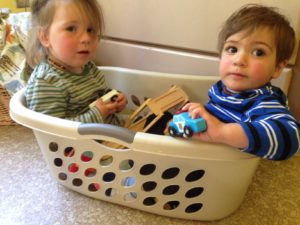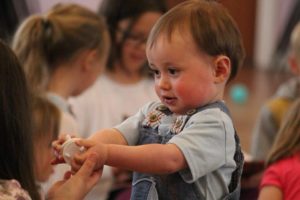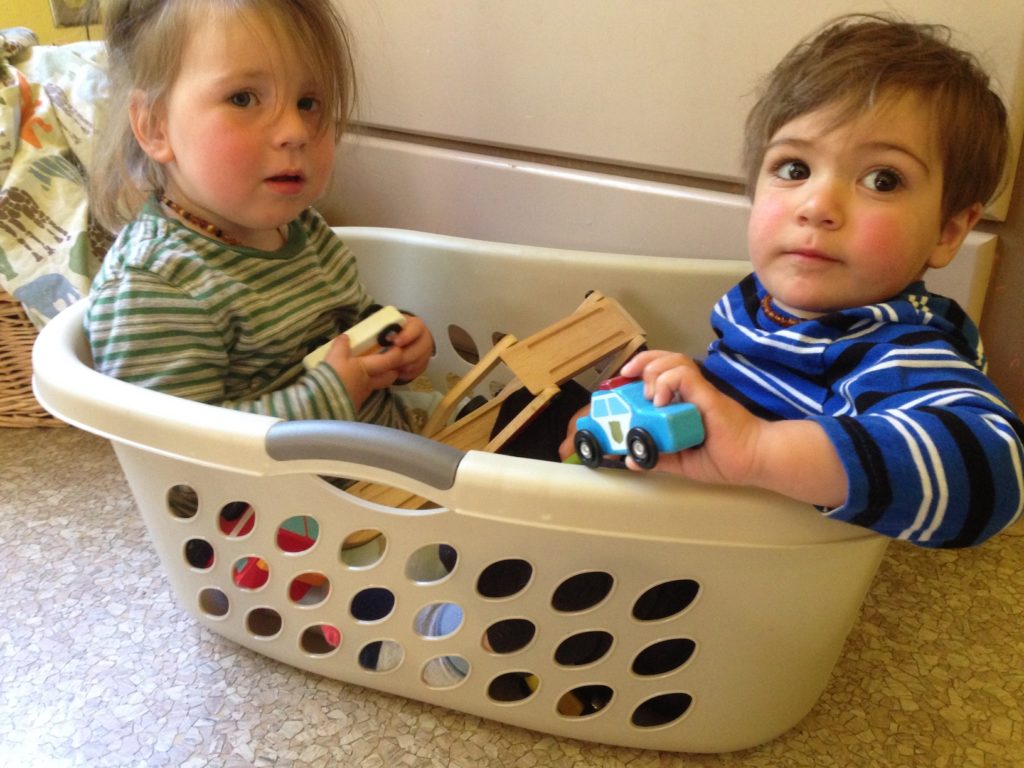December 18, 2022
In this week’s article, we examine the developmental aspects of toddlerhood that play into Social Ability. It is the second article in a series that will focus on the development of social ability throughout early childhood.

Toddlerhood is an ultimate phase of Doing colored by a dramatic entrance of the Feeling life. One moment we are proudly celebrating their first steps, the next moment they are running circles around the house in boundless joy and curiosity. They are hungry to investigate the world around them, and their awareness seems to be growing with every minute, every step. And all of this is steeped in strong emotions they are yet able to identify, let alone regulate.
With full control of their heads and stabilizing postural muscles, they are working on their sense of balance. And with increasing control, their limbs become tools for experimentation as they reach and grab, poke and pinch, kick and climb everything. We are tasked with providing the bounds of safety, a form for their aimless exploration, and the opportunity for discovery. For what lies behind their exploration is a search for meaning and making sense of the world. Even as they are more than a decade away from cognizing this need, it is present in its seed form. Toddlers, children- all of us!- have come to earth with a deep need to connect and contribute to our social realm.

Language as well becomes a way to capture and find ownership in the world they are exploring.
Sounds gradually take the form of words, and then they are pointing, and, with our help, awakening the first steps of conceptual thinking in naming and identifying. Not long after, names become sentences and then a constant chatter of questions and repeating whatever we are saying. Quickly we discover a new reason to be selective with our words, realizing how attentive their ears are to us and their mouths so quick to try out anything new.
With a desire to support language acquisition and temper extreme feelings, we tend to meet their Feeling life with a lot of wordiness and explanations. We wish to help them identify feelings as much as they are identifying the physical world around them; and yet, toddlerhood is not the time for this. It is true that our emotional life is a doorway of connection to understanding ourselves and each other, but these emotions are also massive concepts that require much experience to understand. Without a personal context, our explanations become empty chatter that draws our toddlers out of their bodies~ the fulcrum of their emotional regulation.
As parents and care providers we are educating them from the start on how to contribute to the world, and in these early years, we do it by providing a positive model. For what toddlers are even more than great experimenters, are perfect imitators. As Freya Jaffke explains in Work and Play in Early Childhood,

“Everything is done with the sense of ‘Me too.’ They love moving and handling things, especially real household appliances, and they have no insight into the meaning and purpose of what their mother or other adults around them are doing. In such circumstances, adults can only manage to do their work slowly. They would finish their tasks much more quickly without such willing ‘assistance,’ but having their children with them while they work they have not just dealt with the housework or gardening, they have carried out educational work at the same time.”
The work that we perform around them and with them infuses our toddlers with the meaning and value that can be found in life. The language we choose to use demonstrates our care and reverence.Their boundless feelings are supported in our own equanimity and restraint; as well as the consistency of a well-balanced daily rhythm and firm, loving boundaries. All throughout early childhood, when we act and speak with intention, we are directly tending the seeds of purpose and meaning in their lives. We are welcoming them into the social realm and serving as a model of how they may choose to contribute to the world as they grow.
Blessings to you on your journey with toddlers!
Warmly,


Acacia, I am so grateful for this wonderful series you are taking us through. I hope many readers will recognize the profundity of what you up are sharing as the foundations of becoming human!